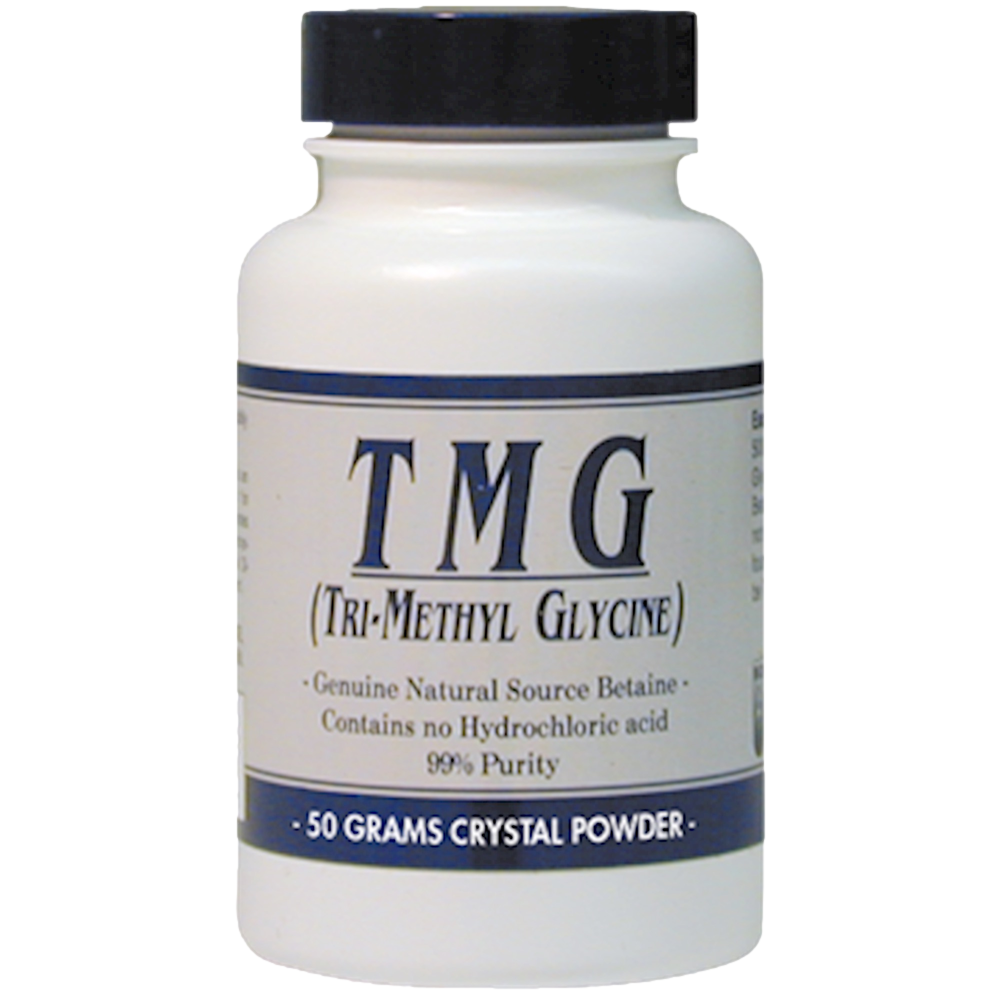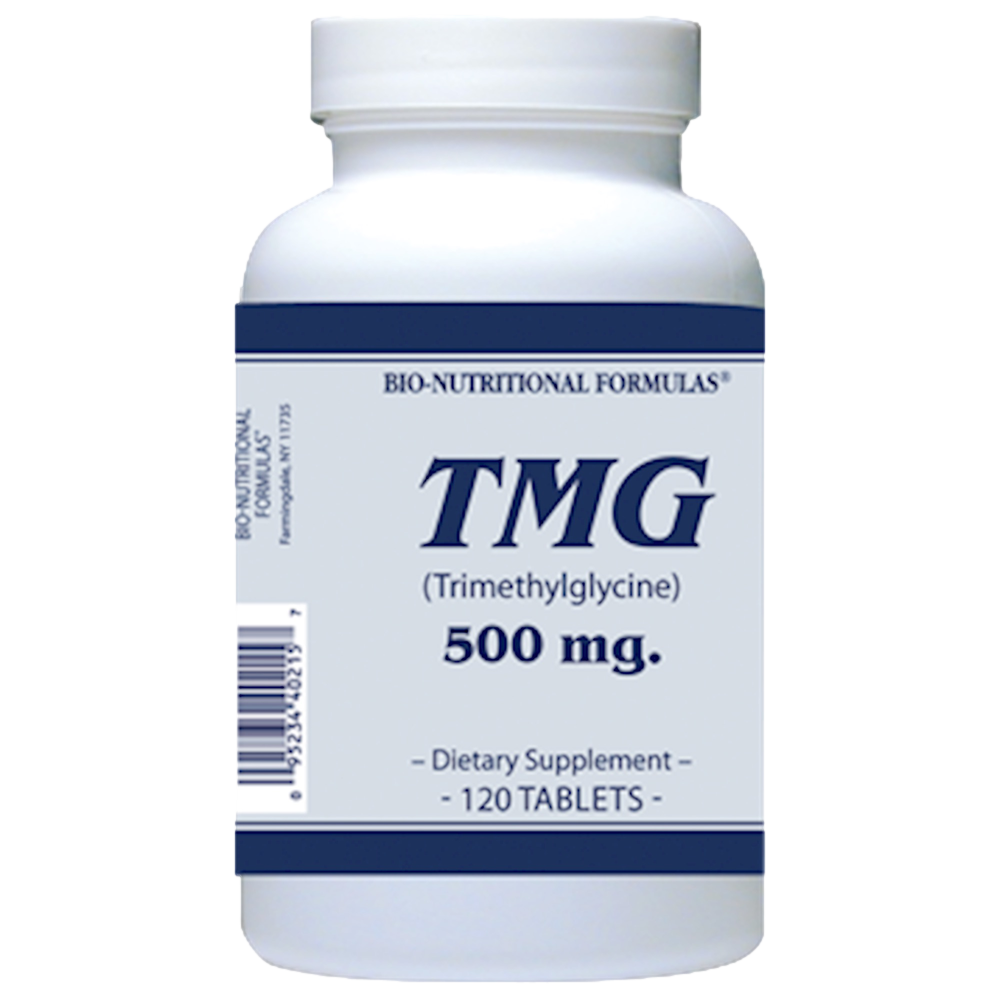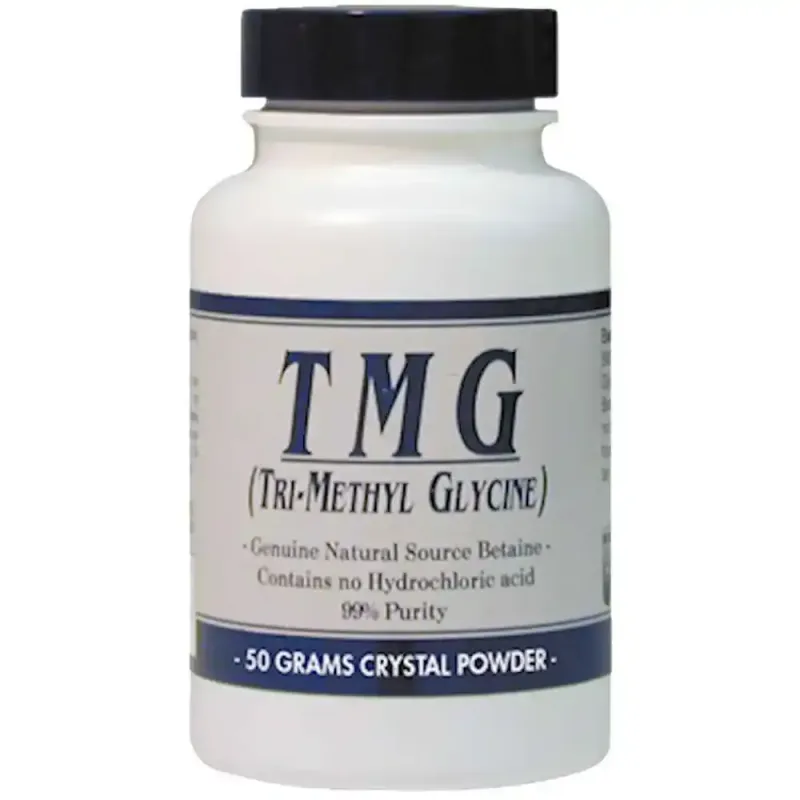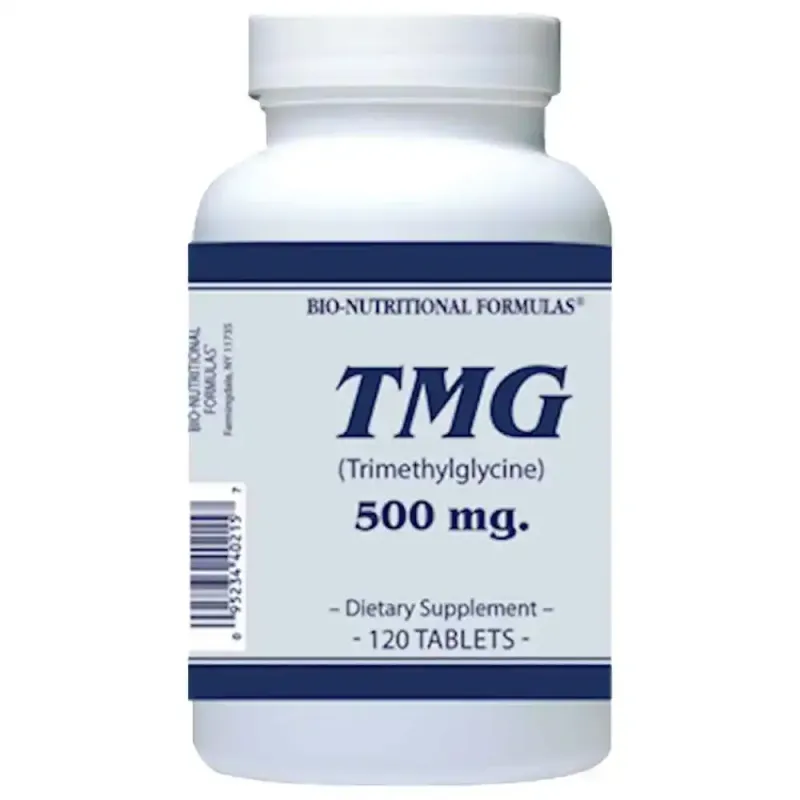Trimethylglycine
Unlocking the Power of Trimethylglycine (TMG): A Comprehensive Guide to Its Benefits and Uses
In recent years, the health and wellness community has turned its attention to a remarkable nutrient known as Trimethylglycine (TMG). Recognized for its versatility and numerous health benefits, TMG has garnered attention as a supplement that can support cardiovascular health, liver detoxification, mood regulation, and more. Whether you're interested in optimizing your overall well-being or addressing specific health concerns, understanding TMG's role in the body is essential. This blog will explore the science behind TMG, its benefits, sources, potential interferences, and how supplementation can help bridge nutritional gaps.
What is Trimethylglycine (TMG)?
Trimethylglycine, also called betaine, is a naturally occurring compound found in various foods and produced endogenously in the human body. Structurally, TMG contains three methyl groups (CH₃) attached to glycine, an amino acid. These methyl groups are crucial biochemical units that participate in numerous vital processes.
The term "methyl donor" refers to TMG's ability to transfer methyl groups to other molecules, facilitating vital reactions such as DNA methylation, amino acid metabolism, and the synthesis of critical compounds like S-adenosyl methionine (SAMe). These processes are fundamental to maintaining cellular function, detoxification, and mood regulation.
The Many Functions of TMG in the Body
TMG's multifaceted roles make it an invaluable nutrient for health. Below are some of its most significant functions:
1. Supporting Heart Health by Lowering Homocysteine Levels
Homocysteine is an amino acid present in the blood; elevated levels are associated with a higher risk of cardiovascular disease. TMG acts as a methyl donor that helps convert homocysteine into methionine, thereby reducing its concentration. Maintaining optimal homocysteine levels is vital for cardiovascular health and reducing the risk of atherosclerosis.
2. Liver Detoxification
The liver is the body's detox powerhouse. TMG supports liver function by promoting methylation reactions necessary for detoxification pathways. It aids in processing fats and removing toxins, possibly reducing the risk of fatty liver disease and other hepatic issues.
3. Enhancing Mood and Mental Clarity
TMG contributes to the synthesis of S-adenosyl methionine (SAMe), a compound involved in neurotransmitter production. Adequate SAMe levels are associated with improved mood and reduced symptoms of depression. Some studies suggest TMG supplementation can support mental health by boosting SAMe synthesis.
4. Supporting Protein Synthesis and Cellular Function
Methylation reactions facilitated by TMG are critical for DNA synthesis, repair, and gene regulation. This makes TMG essential for maintaining healthy cell growth and function.
5. Anti-Oxidant and Anti-Inflammatory Properties
As an antioxidant, TMG helps neutralize free radicals, reducing oxidative stress and inflammation, which are underlying factors in many chronic diseases.
6. Energy Production and Physical Performance
By supporting methylation and detoxification pathways, TMG can improve cellular energy production, potentially leading to increased stamina and reduced fatigue.
Dietary Sources of TMG
While TMG is available as a supplement, it also occurs naturally in certain foods:
- Beets: Rich in betaine, a form of TMG
- Broccoli and Spinach: Contain moderate amounts
- Whole grains: Such as wheat bran and oats
- Seafood: Especially shellfish
- Sweet potatoes
Despite these sources, many individuals do not consume enough TMG through diet alone, especially considering modern agricultural practices and soil depletion that reduce nutrient content in vegetables.The
Body’s Production of TMG and Factors That Interfere
While the body can produce TMG from choline and other nutrients, various factors can impair this process:
- Mercury Toxicity: Mercury, often accumulated from seafood consumption and dental amalgams, can interfere with methylation pathways and TMG production.
- Copper Toxicity: Elevated copper levels, often due to zinc deficiency, can hinder methylation.
- Toxic Metals and Pollutants: Exposure to heavy metals can deplete methyl donors.
- Stress, Infection, and Inflammation: These conditions increase the body's demand for methyl groups, potentially leading to deficiencies.
- Genetic Factors: Some individuals have genetic polymorphisms affecting methylation efficiency (e.g., MTHFR mutations).
Because of these interferences, many people may experience suboptimal TMG levels, which can impact their health.
Why Supplement with TMG?
Given the importance of TMG and the factors that compromise its production, supplementation becomes a practical and effective way to ensure adequate intake. For many, especially those with higher needs due to detoxification challenges or genetic predispositions, adding TMG can be transformative.
Supplementation can:
- Lower homocysteine levels and support cardiovascular health
- Enhance liver detoxification
- Improve mood and cognitive function
- Support cellular repair and DNA methylation
- Act as a potent antioxidant
TMG Supplements: Forms and Dosages
TMG supplements are available in various forms:
Capsules: Typically contain 500 mg of TMG derived from natural betaine sources.
Powders: For flexible dosing.
The standard dose is often around 500 mg per serving, but individual needs may vary, especially during detox phases or healing reactions.
Specific TMG Products Explained
Here are two popular TMG products you might consider, with details to help you choose:
1. Bio Nutritional Formulas TMG 50 Grams

Description: A powdered form of TMG, providing 50 grams of betaine per container.
Usage: Ideal for those who prefer to measure doses precisely or add to smoothies and drinks.
Benefits:
- Pure, natural betaine source
- Cost-effective for ongoing use
- Supports methylation, liver detox, and cardiovascular health
Ideal For: People who want flexibility in dosing and enjoy mixing powders into their routine.
2. Bio Nutritional Formulas TMG 500mg 120 Tablets

Description: Convenient capsules containing 500 mg of TMG (betaine) per tablet.
Usage: Easy to take with water, suitable for daily supplementation.
Benefits:
- Precise dosage
- Easy to incorporate into daily routine
- Supports methylation and homocysteine reduction
Ideal For: Those seeking a simple, no-fuss supplement option.
Who Can Benefit Most from TMG?
Most individuals can benefit from TMG supplementation, especially those with:
- Elevated homocysteine levels
- Liver health concerns
- Mood or cognitive issues
- Exposure to environmental toxins
- Heavy metal accumulation
- Genetic polymorphisms affecting methylation
People undergoing detoxification or nutritional balancing programs often see significant improvements with TMG support.
Final Thoughts: Incorporating TMG into Your Wellness Routine
Given its vital role in supporting cardiovascular health, liver detoxification, mood, and cellular function, TMG is an invaluable addition to a comprehensive wellness plan. Whether sourced from diet or supplementation, ensuring adequate methyl donor availability can help optimize your health and resilience.
Conclusion
Trimethylglycine (TMG) stands out as a multifaceted nutrient essential for maintaining health at the cellular level. Its ability to donate methyl groups makes it a powerful supporter of cardiovascular health, liver detoxification, mood stability, and antioxidant defenses. Despite its natural occurrence in foods, modern diets and environmental factors can impair TMG levels, making supplementation a valuable strategy.
By understanding the science behind TMG and its benefits, you can make informed decisions to support your health journey. Whether you're looking to improve heart health, enhance detoxification, or boost mental clarity, TMG offers a natural and effective avenue for achieving your wellness goals.In a world fraught with environmental toxins, nutritional gaps, and stress, supporting your body’s methylation system is more important than ever. Trimethylglycine (TMG) offers a safe, natural, and effective way to bolster methylation, promote detoxification, improve cardiovascular health, and support mental well-being.
This material is for educational purposes only
The preceding statements have not been evaluated by the Food and Drug Administration
This information is not intended to diagnose, treat, cure or prevent any disease.


